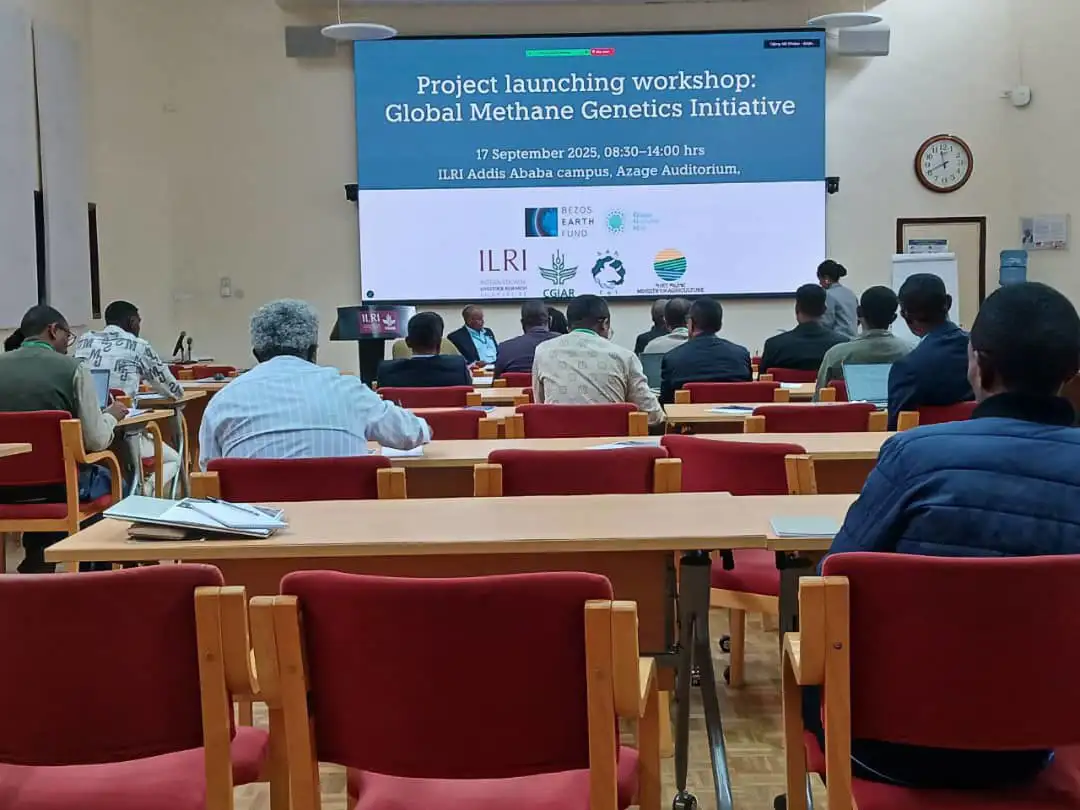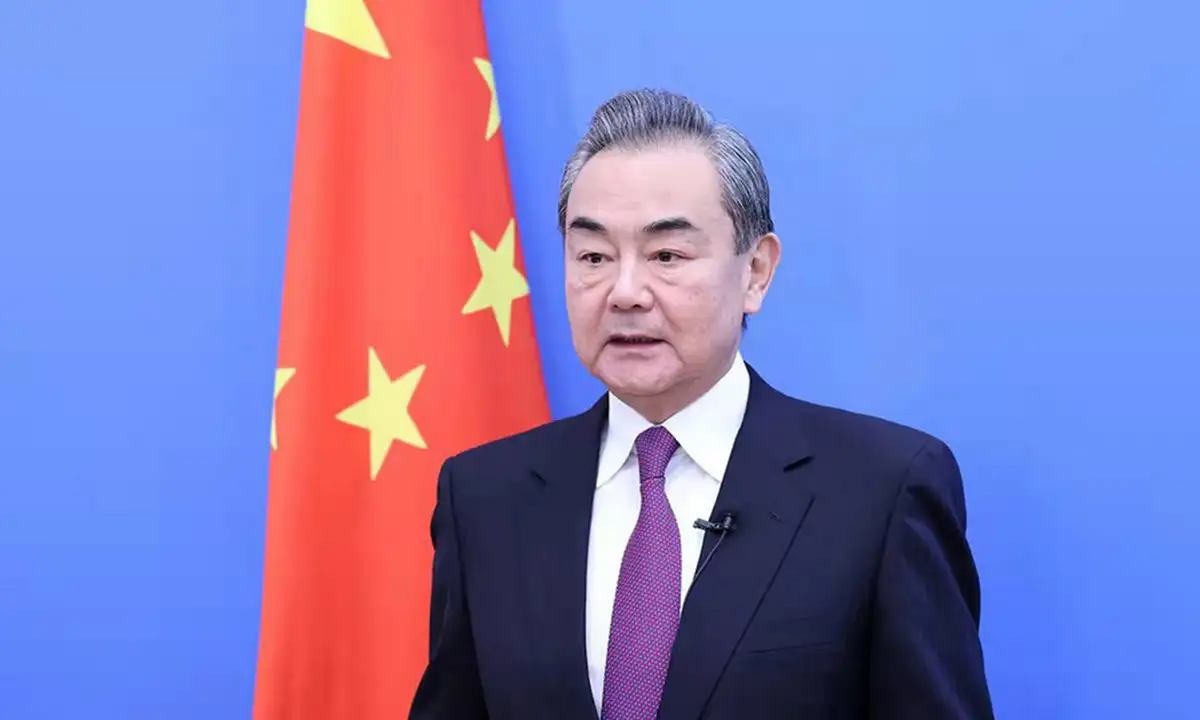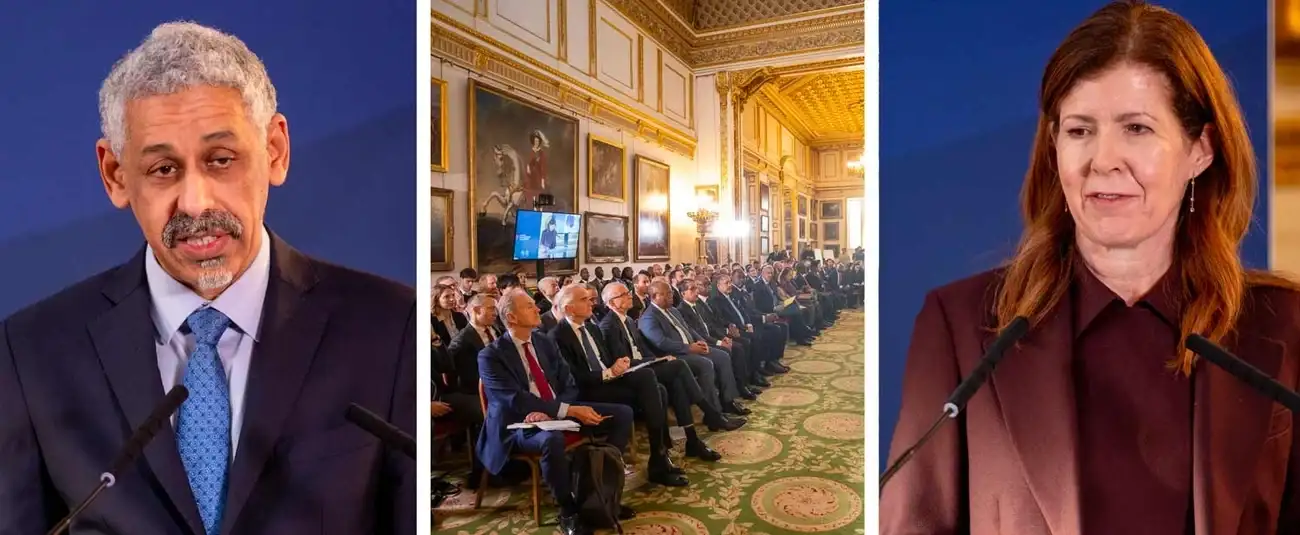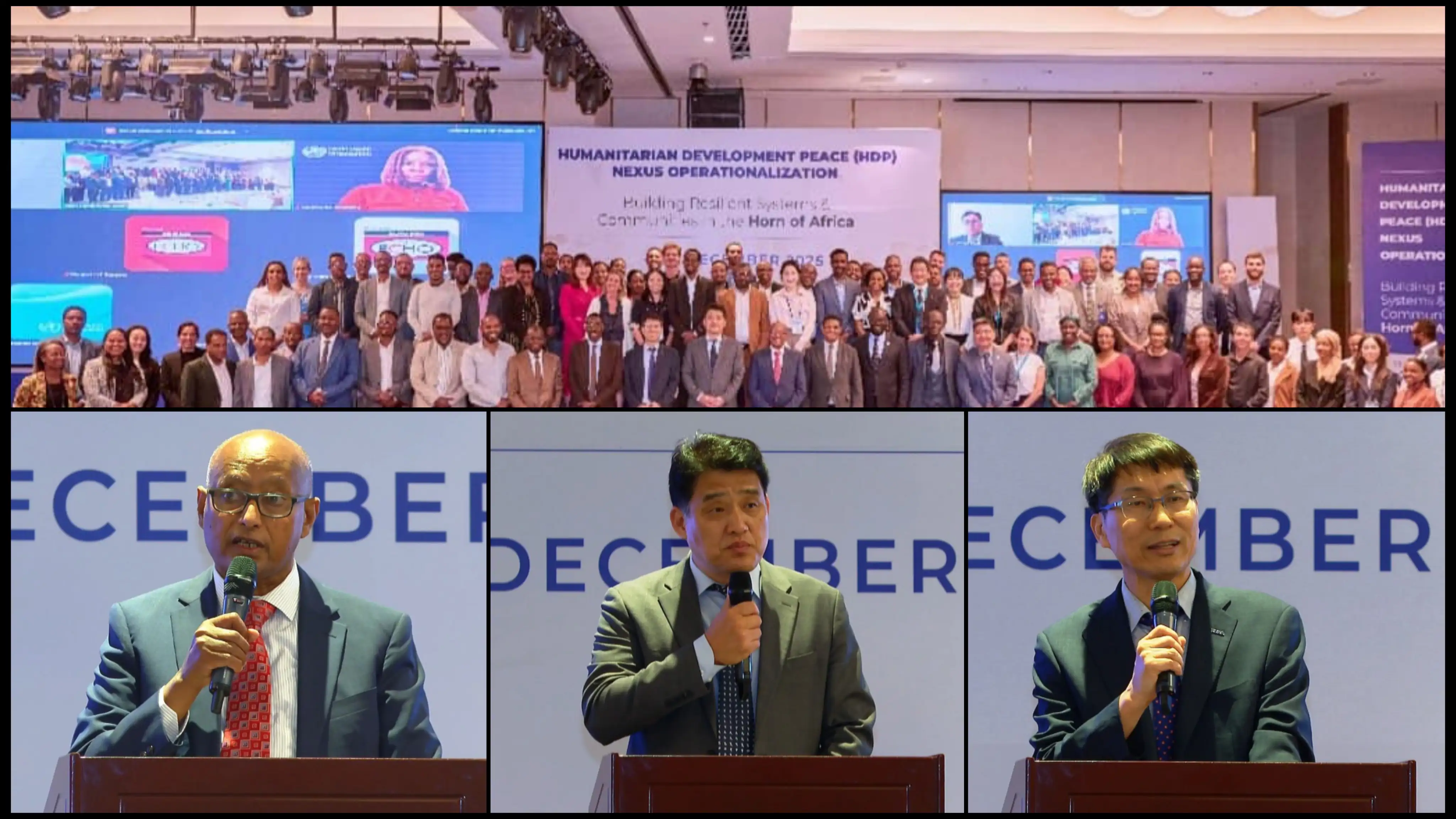By: Shiferaw Lakew
The International Livestock Research Institute (ILRI), with support from the Bezos Earth Fund and the Global Methane Hub, announced on 17 September 2025 the launch of a three-year, US$3.35 million initiative, Accelerating Reduced Emissions in Indigenous Breeds in Africa.
Part of the Global Methane Genetics Initiative, the project will use cutting-edge science to help African countries breed cattle that produce less methane (CH₄) emissions.
By improving indigenous livestock, the initiative aims to reduce emissions while strengthening productivity, food security, and climate resilience for millions of smallholder farmers across the continent, it was disclosed at the launching event.
According to a press release sent to EBC, livestock in Africa account for 10% of global livestock methane emissions, with cattle alone responsible for 70% of emissions in Sub-Saharan Africa. Without intervention, these emissions could triple by 2050. By tapping into the genetic diversity of indigenous breeds and applying cutting-edge science, the initiative will help Africa contribute to global climate goals, including the 1.5°C warming target.
ILRI says it will coordinate the Africa-wide effort from Nairobi, Kenya and Addis Ababa, Ethiopia, working with leading partners including the Agricultural Research Council (South Africa), French Agricultural Research Centre for International Development (CIRAD) and The International Centre for Research and Development of Livestock in the subhumid zone, (CIRDES Burkina Faso), and Université d'Abomey-Calavi (Benin). Partnerships with organizations such as URUS and GENUS will ensure dissemination through breeding centers and farmer networks.
This initiative marks a major step in aligning livestock research with climate action, offering a pathway to permanent and cost-effective methane mitigation while securing the future of African farming communities.




